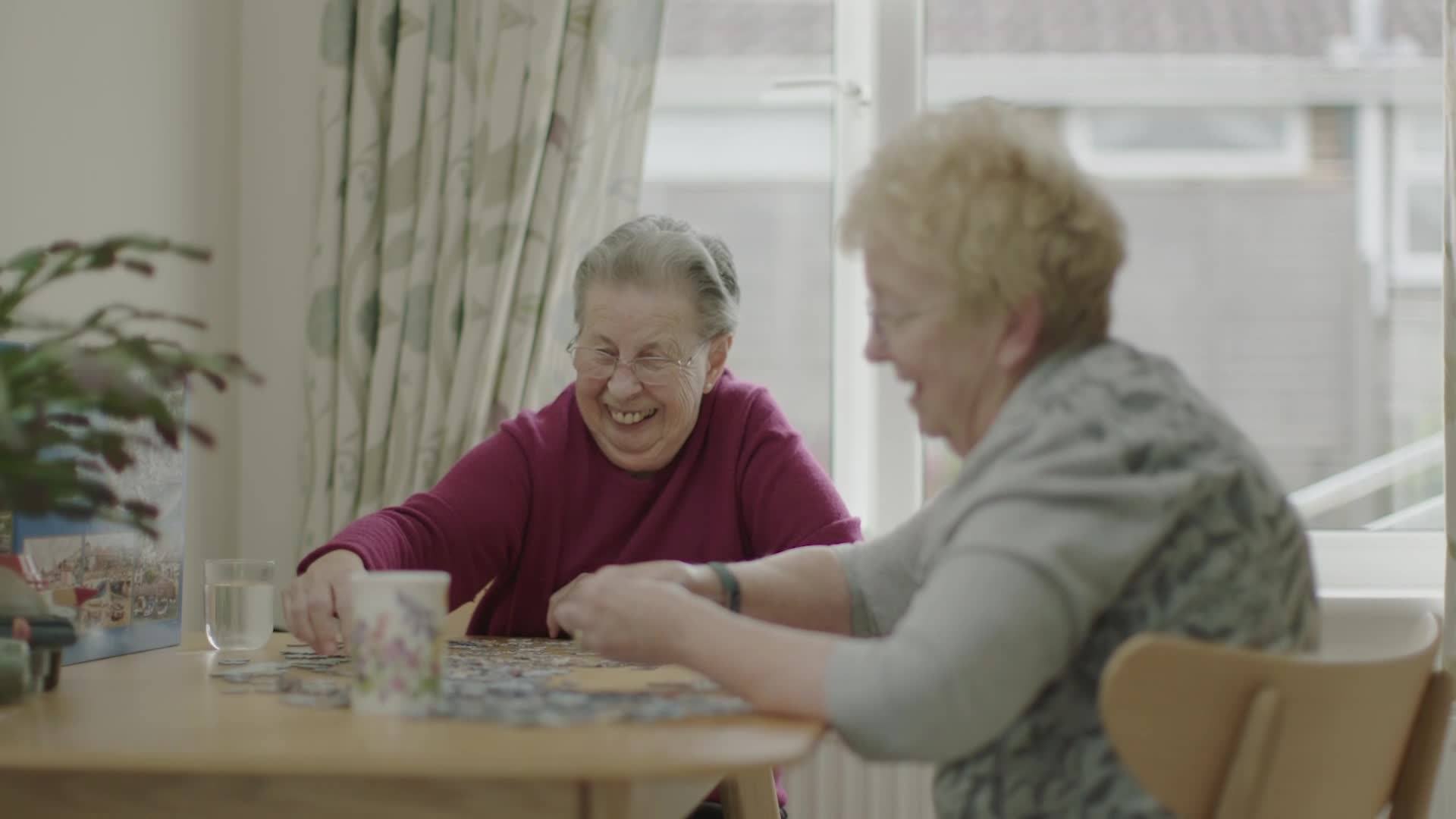
The greatest gift you can give is time. It’s a precious commodity, after all we only have a limited amount of it, so giving it shows the recipient that you care. That’s what befriending is about, and that’s why it’s so special.
Befriending has been at the centre of the SVP’s mission for almost 200 years. It’s what we do, and most of our work starts with a chat over a cup of tea. Time to listen, understand and offer support. Communication is a basic human need we all share.
The benefits of befriending are not solely reserved for those on the receiving end of the service, the befriender also gains from the experience. It’s not surprising that many befriending relationships grow and blossom into genuine friendships, sometimes life-long.
It’s all about chemistry
It’s true on a sociological and a scientific level that forming friendships is about chemistry. We’ve all experienced ‘chemistry’, that feeling that you’ve known someone for years when you’ve actually just met. The feeling that talk is easy with no awkward pauses. There is literally chemistry involved, which our brains release under certain circumstances.
The brain’s reaction to friendship is informed by the release of four different chemicals - dopamine, oxytocin, serotonin and endorphins - each providing a separate response depending on the situation.
Imagine someone who is alone saying that they are pleased to see you, or the delight they feel when you say you have been looking forward to the visit. At that moment our brains produce dopamine, giving the befriender and the person receiving the visit a shared moment of delight. Dopamine powers that instant feeling of joy which is so fulfilling for both parties.
Over the past year, with the possibility of face-to-face befriending greatly reduced, other methods of building trust and friendship have been introduced, such as telephone and internet contact. Our brains recognise this type of positive social interaction and produce oxytocin, which is often referred to as the ‘hugging’ hormone, no matter if the interaction is physical or a connection via another medium.
It’s also good to know that there is a correlation between higher levels of oxytocin and a boost to the immune system. Unlike dopamine, oxytocin provides longer-term feelings of calm and can even help to combat stress.
If you have ever felt pride in an achievement, and basked in the recognition of others, you will have experienced the effect of serotonin on the brain. Serotonin is another ‘social hormone’, but one which can affect our physical health, such as gut activity.
Meanwhile, endorphins are the brain’s way of dealing with pain, blocking it out and replacing it with feelings of pleasure and wellness. In the world of befriending, pain can all too easily be part of your journey with someone, but the endorphins released after a good cry can really help. It’s also why a good belly laugh can relieve tension.
Mutual benefits
It’s difficult to argue with compelling scientific evidence, but there are still some mysteries surrounding the drive to befriend, care, show kindness and compassion. Yes, some of this can be explained through evolution, but there is something else less tangible. Something spiritual which science can’t explain.
Whether driven by the basic desire to help someone in need, or to live by the ideals set down in the Bible, the Quran, the Vedas, or any other religious text, the drive to befriend demonstrates an inherent humanity which gives those who participate feelings of satisfaction, fulfilment and joy.
There is a mutual benefit in befriending, something any befriender will tell you is important to them. In helping another human being, you are finding a path to your own fulfilment. Befrienders will also tell you that they learn new skills and gain an insight into what people think.
However, it’s the knowledge that the little things matter the most which is poignant. Visiting someone once a week for a cup of tea and a chat may seem insignificant, but the gesture, the gift of time is something precious. The relationship can be almost perfectly symbiotic.
About time
It’s often said that ‘time is money’, in fact it was originally uttered by United States founding father Benjamin Franklin, himself a scientist and philosopher. In business, that may be true, but outside of that fiscal state, time is free, but extremely precious. Some may have more of it, some less due to work commitments, family or, sadly, old age, but it’s how we use it which makes a difference.
Perhaps he didn’t have befriending in mind when American educator Stephen R Covey said: “The key is not in spending time, but in investing it.” The phrase perfectly sums up befriending: investing time in someone pays dividends for the soul, for both parties.